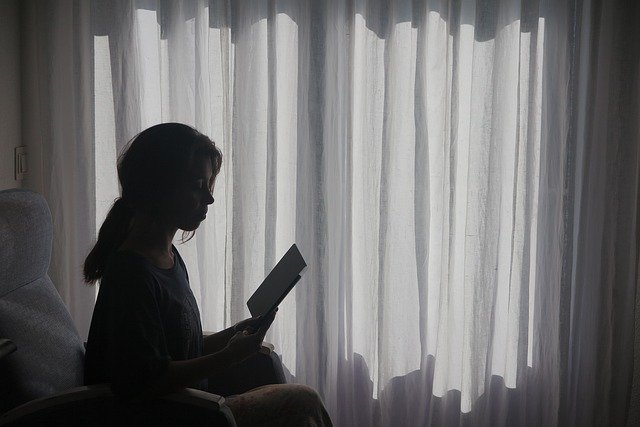Wer an Depression leidet, braucht Hilfe beim Psychiater in einer Praxis oder Klinik. Doch was, wenn es keine gibt oder man sie sich gar nicht leisten kann? Dann setzt man sich zu einer Großmutter auf die Bank. In Zimbabwe begann 2007 das Projekt Friendship Bench. Inzwischen fanden Zehntausende von Menschen teils lebensrettende seelische Unterstützung durch Sitzungen mit einer älteren Frau auf einer Holzbank im Freien. Die Idee, viele Großmütter an vielen Orten als psychologische Helfer einzusetzen, ist so revolutionär wie erfolgreich. Inzwischen gibt es die Freundschaftsbank sogar in New York City.
Wissenschaftlicher Leiter des Friendship Bench Projektes ist Dixon Chibanda. Er ist einer von 12 Psychiatern, die der 16-Millionen-Bevölkerung von Zimbabwe zur Verfügung stehen. In zahlreichen Vorträgen und Publikationen berichtet er, wie die Friendship Bench aus der Not entstand und zu einer bahnbrechenden Lösung wurde.
Kein Geld für die Fahrt zum Arzt
Ursprünglich hatte der Medizinstudent Chibanda eine Laufbahn als Internist oder Dermatologe geplant. Bis sich ein Kommilitone, der stets als ausgesprochene Frohnatur in Erscheinung getreten war, das Leben nahm. Chibanda arbeitete bereits als Psychiater Zimbabwes Hauptstadt Harare, als er ein weiteres Schlüsselerlebnis hatte. Seine Patientin Erica hatte einen Rückfall mit Selbstmordversuch. Es war vereinbart, dass sie mit ihrer Mutter so schnell wie möglich zur Therapie nach Harare kommen sollte. Doch Erica kam nie. Sie erhängte sich am Ast eines Mangobaums. Ein Anruf bei der Mutter ergab, dass das Geld für die Busfahrt in die Hauptstadt fehlte.
Chibanda, der auch Gesundheitswesen studiert hatte, machte es sich daraufhin mithilfe seines Teams zur Aufgabe, psychologische Hilfe in die Breite zu bringen. Doch wie sollte das funktionieren? 70 Prozent der Bevölkerung Simbabwes lebt in Armut. Viele Menschen sind durch materielle Not und Gewalterfahrungen aus den Bürgerkriegen traumatisiert. Frauen leiden unter den patriarchalischen Strukturen. Jeder vierte Einwohner ist an Depression erkrankt. Die Selbstmordrate ist hoch. Doch für eine flächendeckende psychologische Versorgung gab es weder genügend geschultes Personal noch Praxisräume noch Geld.
Aus der Not entstanden
Was jedoch zahlreich zur Verfügung stand, waren Laiengesundheitshelferinnen, die sogenannten Community Grandmothers, und Plätze im Freien, auf die man eine Bank stellen kann. So entstand die Idee für eine Feldstudie mit 14 Großmüttern, die in einem Vorort in Harare auf einer Holzbank als offizielle „Praxis“ ihrer neuen Rolle als Gesprächstherapeutinnen für Menschen in seelischer Not nachgingen.
Die älteren Frauen wurden freilich auf ihre Aufgabe vorbereitet. Sie erhielten Fragebögen in der Landessprache, um sehr schwere Fälle erkennen und an ein Gesundheitszentrum weiterleiten zu können. Während eines mehrwöchigen Trainings auf Basis der kognitiven Verhaltenstherapie wurden die Großmütter über drei Phasen einer Gesprächstherapie unterrichtet, die zwar westlichen Therapiemodellen folgen, aber in kulturell und sprachlich leicht erfassbaren Begriffen vermittelt wurden:
- „kuvhura pfungwa“ beziehungsweise „opening up the mind“, wobei die Gesprächspartner das Hauptproblem identifizieren und sich darauf konzentrieren sollen
- „kusimudzira“ beziehungsweise „uplifting the individual“, wobei beide an Lösungen des Problems arbeiten
- „kusimbisa“ beziehungsweise „strengthening“, wobei die Patientin oder der Patient größtenteils selbständig – nur unterstützt in einigen weiteren Sitzungen – kontinuierlich Mittel und Wege zur Lösung verfolgen sollen
Friendship statt Mental Health
Daran, dass das Projekt nicht sofort scheiterte, hatten die Großmütter einen entscheidenden Anteil. Sie wiesen darauf hin, dass nicht ein mangelndes medizinisches Erscheinungsbild die potentiellen Patientinnen und Patienten abschreckte, sondern genau das Gegenteil. In einem Land, in dem psychische Erkrankungen extrem stigmatisiert sind und schlimmstenfalls ein Exorzist statt medizinischer Hilfe gesucht wird, durfte von „Depression“, „klinisch“ oder „psychiatrisch“ nicht die Rede sein. Also wurde die ursprünglich vorgesehene „Mental Health Bench“ rasch in Friendship Bench umbenannt und, siehe da, die Menschen setzten sich darauf.
Mehr noch: Die Großmütter boten die kulturelle Anbindung, ein hohes Maß an Einfühlungsvermögen und ihre ganz persönliche Weisheit, mit Krisenlagen umzugehen. Als eines der wichtigsten Erfolgsgeheimnisse galt ihre Fähigkeit zuzuhören, die Hilfesuchenden selbst Lösungen entwickeln zu lassen und sich mit eigenen Ratschlägen zurückzuhalten. Mit Großvätern, die versuchshalber zum Einsatz kamen, klappte das nicht.
Gewinn für beide Seiten
Dabei erwiesen sich die älteren Frauen nicht nur als erstaunlich belastbar. Offenbar zogen sie aus ihrer ehrenamtlichen Arbeit sogar eigenen persönlichen Gewinn in Form von Anerkennung und Wertschätzung.
Den Erfolg der Großmutter-Therapie konnte Chibanda schließlich, gefördert von der Grand Challenges-Stiftung Canada, wissenschaftlich untermauern. In einer 2016 im Journal of the American Medical Association veröffentlichten Studie kamen der Psychiater und seine Mit-Autoren zu dem Ergebnis, dass die Symptome einer großmuttertherapierten Gruppe deutlich stärker zurückgingen als bei der konventionell therapierten Vergleichsgruppe.
Know-how-Transfer nach NYC
Mittlerweile wurden über 500 Großmütter für ihren seelenheilsamen Einsatz auf der Bank ausgebildet. Die ursprüngliche Feldstudie entwickelte sich zu einer Non-Profit-Organisation, die ihr Modell erfolgreich auf vier weitere Länder im südlichen Afrika ausgeweitet hat. Der erstaunlichste Süd/Nord-Wissenstransfer dürfte aber der Einsatz der Friendship Bench in fast allen Stadtteilen von New York City sein, einschließlich des glamourösen Manhattan.
Obwohl in der amerikanischen Metropole kein Mangel an Psychologen besteht, haben letztlich wenige wohlhabende Menschen Zugang dazu. Mit Unterstützung der New Yorker Gesundheitsbehörde bietet das Friendship Bench-Projekt psychologische Hilfe, die bereits von Tausenden von Menschen in Anspruch genommen wurde.
Die Bänke in New York sind allerdings nicht aus Holz, sondern aus orangem Plastik. Damit sie nicht gestohlen werden, sind einige mit Wasser gefüllt.
English Version
Friendship Bench – The wisdom of grandmothers as therapy
Anyone suffering from depression needs help from a psychiatrist in a practice or clinic. But what if there isn’t one or you can’t afford one? Then you sit on the bench with a grandmother. The Friendship Bench project began in Zimbabwe in 2007. In the meantime, tens of thousands of people have found partly life-saving spiritual support through meetings with an elderly woman on a wooden bench outside. The idea of using many grandmothers in many places as psychological helpers is as revolutionary as it is successful. In the meantime, the Friendship Bank even exists in New York City.
Scientific director of the Friendship Bench project is Dixon Chibanda. He is one of 12 psychiatrists available to the 16 million population of Zimbabwe. In numerous lectures and publications he reports on how the Friendship Bench emerged from need and became a groundbreaking solution.
No money for the trip to the doctor
Originally, the medical student Chibanda had planned a career as an internist or dermatologist. This was until a fellow student, who had always appeared as a very cheerful person, took his own life. Chibanda was already working as a psychiatrist in Zimbabwe’s capital Harare when he had another key experience. His patient Erica had a relapse with attempted suicide. It was agreed that she and her mother should come to Harare for therapy as soon as possible. But Erica never came. She hanged herself on the branch of a mango tree. A phone call to the mother revealed that the money for the bus trip to the capital was missing.
Chibanda, who had also studied health care, then set himself the task, with the help of his team, of spreading psychological help. But how would that work? 70 percent of Zimbabwe’s population lives in poverty. Many people are traumatized by material hardship and violence from the civil wars. Women suffer under patriarchal structures. Every fourth inhabitant suffers from depression. The suicide rate is high. But there was not enough trained staff, practice rooms or money to provide comprehensive psychological care.
Emerging from necessity
What was available in large numbers, however, were lay health workers, the so-called Community Grandmothers, and outdoor places where you can put a bank. This is how the idea came about for a field study with 14 grandmothers who, in a suburb of Harare, acted on a wooden bench as the official „practice“ in their new role as counselors for people in emotional distress.
The older women were of course prepared for their task. They received questionnaires in the national language in order to identify very serious cases and forward them to a health centre. During several weeks of training based on cognitive behavioural therapy, the grandmothers were taught three phases of conversational therapy, which followed Western therapy models but were taught in terms that were easy to grasp culturally and linguistically:
- „kuvhura pfungwa“ or „opening up the mind“, in which the interlocutors identify the main problem and concentrate on it
- „kusimudzira“ or „uplifting the individual“, both working on solutions to the problem
- „kusimbisa“ or „strengthening“, in which the patient – supported only in a few further sessions – should continuously pursue ways and means of solving the problem.
Friendship instead of Mental Health
The grandmothers played a decisive role in the fact that the project did not fail immediately. They pointed out that it was not a lack of medical appearance that deterred potential patients, but exactly the opposite. In a country where mental illnesses are extremely stigmatised and, in the worst case, an exorcist is sought instead of medical help, words such as „depression“, „clinical“ or „psychiatric“ could not be used. So the originally planned „Mental Health Bench“ was quickly renamed Friendship Bench and, lo and behold, the people sat on it.
Even more: the grandmothers offered the cultural connection, a high degree of empathy and their very personal wisdom to deal with crisis situations. One of the most important secrets to their success was their ability to listen, to let the people seeking help develop their own solutions and to hold back their own advice. This did not work with grandfathers as helpers.
Win-win
The older women proved not only to be surprisingly resilient. Obviously, they even made their own personal profit from their voluntary work in the form of recognition and appreciation.
The success of the grandmother therapy was finally scientifically substantiated by Chibanda, sponsored by the Grand Challenges Foundation Canada. In a study published in 2016 in the Journal of the American Medical Association, the psychiatrist and his co-authors came to the conclusion that the symptoms of a grandmotherly treated group decreased significantly more than those of the conventionally treated control group.
Know-how transfer to NYC
In the meantime, more than 500 grandmothers have been trained on the bank for their soul-saving work. The original field study developed into a non-profit organisation that has successfully extended its model to four other countries in southern Africa. The most amazing South/North knowledge transfer, however, is likely to be the Friendship Bench in almost all parts of New York City, including glamorous Manhattan.
Although there is no shortage of psychologists in the American metropolis, few wealthy people have access to them. With the support of the New York Health Authority, the Friendship Bench project provides psychological help that has already been used by thousands of people.
The benches in New York, however, are not made of wood, but of orange plastic. To prevent them from being stolen, some are filled with water.




